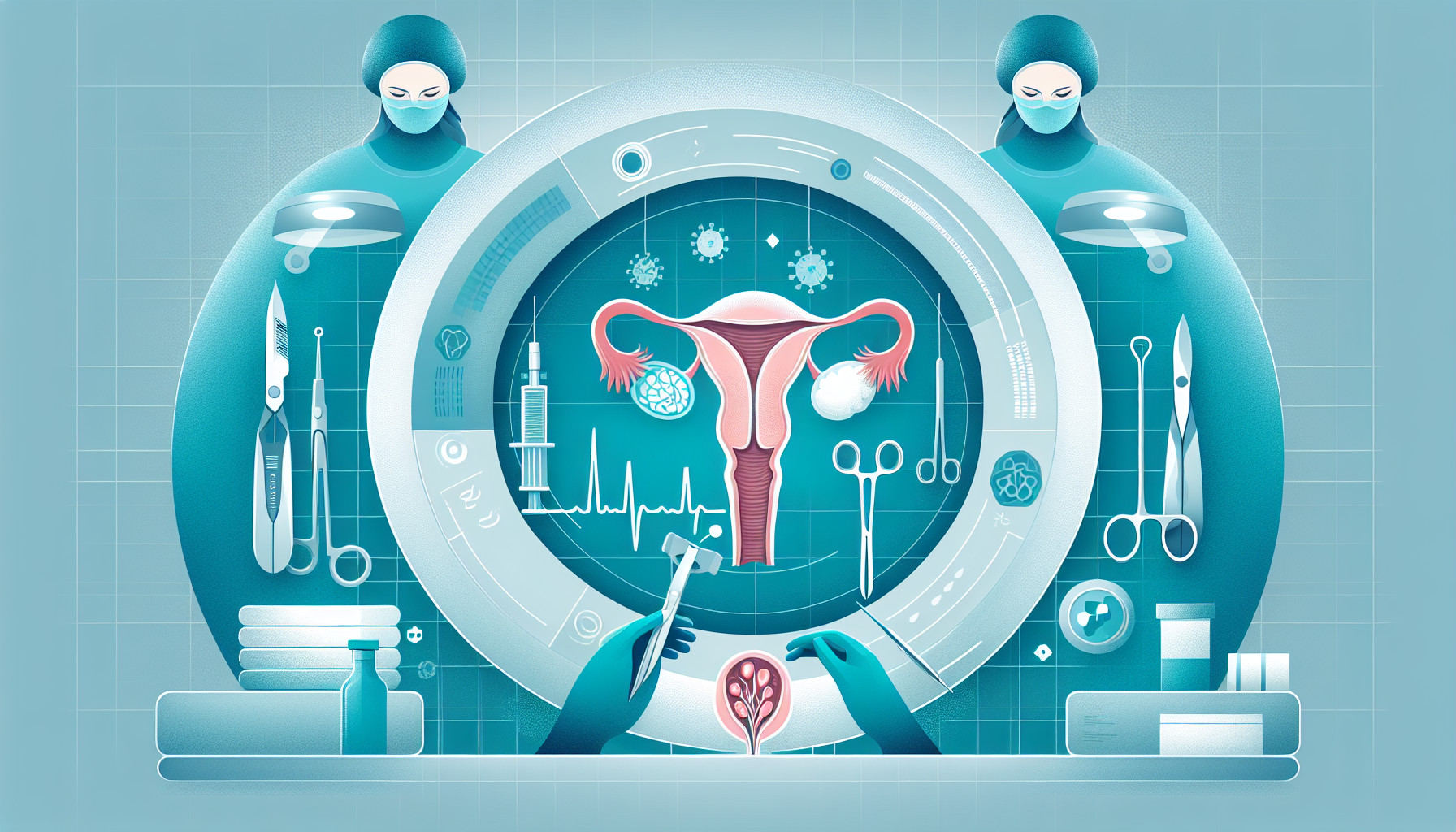Our Summary
This research paper examines whether previous surgeries to remove benign (non-cancerous) cysts from the ovaries affect a woman’s ovarian reserve and the success of in vitro fertilization (IVF) treatments. Ovarian reserve refers to a woman’s fertility potential in terms of the quantity and quality of her eggs.
The researchers looked at the medical records of 622 women who had their first IVF treatment at a hospital in China between January 2013 and June 2014. Of these women, 153 had previously had surgery to remove ovarian cysts. These cysts included endometriosis cysts, benign ovarian teratomas, simple ovarian cysts, and mucinous cystadenomas. The other 469 women, who had not undergone previous ovarian surgery, were used as a control group for comparison.
The results showed that the women who had undergone cyst removal surgery had lower levels of a hormone called AMH (which is an indicator of the number of remaining eggs), fewer eggs retrieved during IVF treatment, and fewer embryos available for freezing for future use. However, this did not seem to affect their chances of becoming pregnant through IVF.
The research also found that women who had surgery for endometriosis cysts were more affected than those with other types of cysts, with fewer eggs retrieved and embryos frozen. However, again this did not significantly affect their chances of becoming pregnant through IVF.
In conclusion, while surgery to remove benign ovarian cysts may reduce the number of eggs a woman has and the number of embryos that can be frozen for future use, it does not seem to reduce her chances of becoming pregnant through IVF. However, surgery for endometriosis cysts seems to have a greater impact on these factors.
FAQs
- Does surgery to remove benign ovarian cysts affect a woman’s chances of becoming pregnant through IVF?
- How does surgery for endometriosis cysts impact a woman’s fertility compared to other types of cysts?
- What impact does ovarian cyst removal surgery have on a woman’s ovarian reserve and the success of IVF treatments?
Doctor’s Tip
A doctor may advise a patient undergoing ovarian cyst removal to discuss the potential impact on their ovarian reserve and fertility with their healthcare provider. They may also recommend considering options such as egg freezing before surgery if the patient is concerned about their fertility in the future. Additionally, they may suggest monitoring hormone levels and ovarian function after surgery to assess any potential impact on fertility.
Suitable For
Patients who are typically recommended for ovarian cyst removal include those with large cysts that are causing symptoms such as pelvic pain, bloating, and pressure. Patients with cysts that are suspected to be cancerous or are at a high risk of becoming cancerous are also recommended for removal. Additionally, patients with cysts that are affecting their fertility or causing complications such as ovarian torsion or rupture may be recommended for surgery.
It is important for patients to discuss their individual case with their healthcare provider to determine the best course of action for managing ovarian cysts. In some cases, monitoring the cyst with regular ultrasounds may be recommended instead of immediate surgery.
Timeline
Before ovarian cyst removal, a patient may experience symptoms such as pelvic pain, bloating, and irregular menstrual cycles. They may also undergo imaging tests such as ultrasounds or MRIs to diagnose the cyst and determine its size and nature.
After the removal of the ovarian cyst, the patient may experience some pain and discomfort in the pelvic area, which can be managed with pain medications. Recovery time varies depending on the type of surgery performed (laparoscopic or open) and the size of the cyst. The patient may need to take it easy for a few days or weeks and avoid heavy lifting and strenuous activities.
In the long term, the patient may experience improved symptoms such as reduced pelvic pain and bloating. They may also have a lower risk of complications such as cyst rupture or torsion. If the patient is trying to conceive, they may have a higher chance of successful pregnancy after the removal of the cyst, as it can improve fertility potential.
Overall, ovarian cyst removal can improve the quality of life for the patient and potentially increase their chances of successful pregnancy in the future.
What to Ask Your Doctor
Some questions a patient should ask their doctor about ovarian cyst removal include:
- What type of ovarian cyst do I have, and what are the risks associated with leaving it untreated?
- What are the potential benefits and risks of surgery to remove the ovarian cyst?
- How will the surgery be performed, and what is the recovery process like?
- Will removing the ovarian cyst affect my ovarian reserve or fertility potential?
- How will the surgery impact my chances of becoming pregnant through IVF or other fertility treatments?
- Are there any alternative treatments or options available for managing the ovarian cyst?
- What are the potential complications or side effects of the surgery?
- How long will it take for me to recover and resume normal activities after the surgery?
- Will I need any follow-up appointments or monitoring after the surgery?
- Are there any lifestyle changes or precautions I should take to prevent future ovarian cysts from developing?
Reference
Authors: Zhang XR, Ding LL, Tang R, Sheng Y, Qin YY, Chen ZJ. Journal: Zhonghua Fu Chan Ke Za Zhi. 2016 Mar;51(3):180-5. doi: 10.3760/cma.j.issn.0529-567X.2016.03.004. PMID: 27030496
